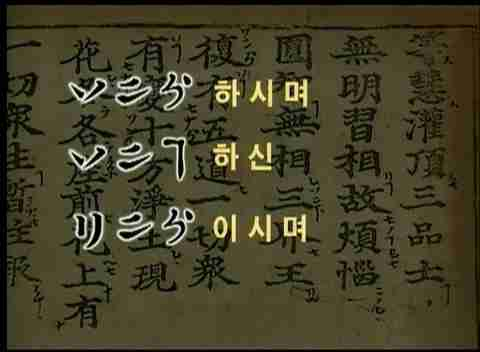Korean language is a language used by Koreans. It belongs to the agglutinative and the Altaic family of language. Korean word order is S+O+V, and modifiers locate before the modified words.
What's the difference between Korean(Hangukeo) & Hangeul?
Han-guk-eo means the language Korean use(spoken language), and the Hangeul means the letters to record the Hangukeo(written language).
History of Hangeul
Koreans had borrowed & used Chinese letters for a longtime before Hangeul was created, which was full of contradictions as the spoken language and written language were totally different, and most of people had difficulties to learn Chinese. These circumstances were beneficial to noble families as they monopolized the difficult written language as well as authority & powers.
 |
| Old Korean from Wikipedia |
and modeling the articulators for consonants.
- Vowels (21 pcs)
ㅏ ㅑ ㅓ ㅕ ㅗ ㅛ ㅜ ㅠ ㅡ ㅣ ㅐ ㅒ ㅔ ㅖ ㅘ ㅙ ㅚ ㅝ ㅞ ㅟ ㅢ
- Consonants (19 pcs)
ㄱ ㄴ ㄷ ㄹ ㅁ ㅂ ㅅ ㅇ ㅈ ㅊ ㅋ ㅌ ㅍ ㅎ ㄲ ㄸ ㅃ ㅆ ㅉ
After Hangeul was created, it had been spread to weaker people(working classes & women) very fast.
Now Koreans celebrate it as the "Day of Hangeul" on October, 9th every year.
Pls find further information here in the official Hangeul site "Want to know about Hangeul?" from Korean government.



nikka.jpg)